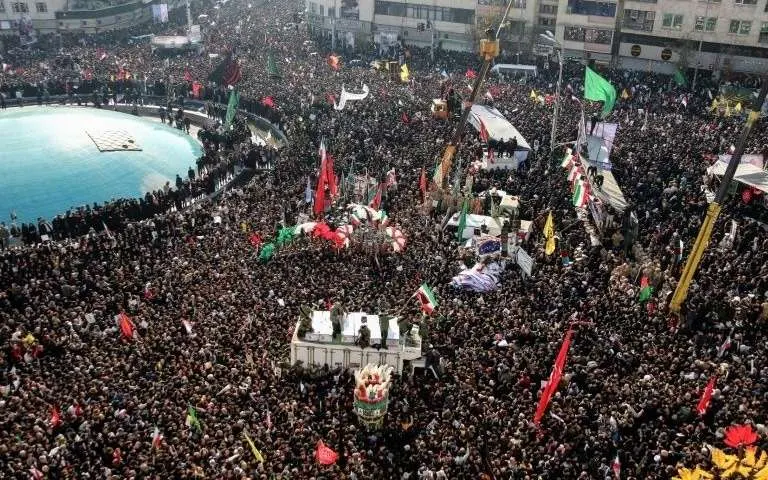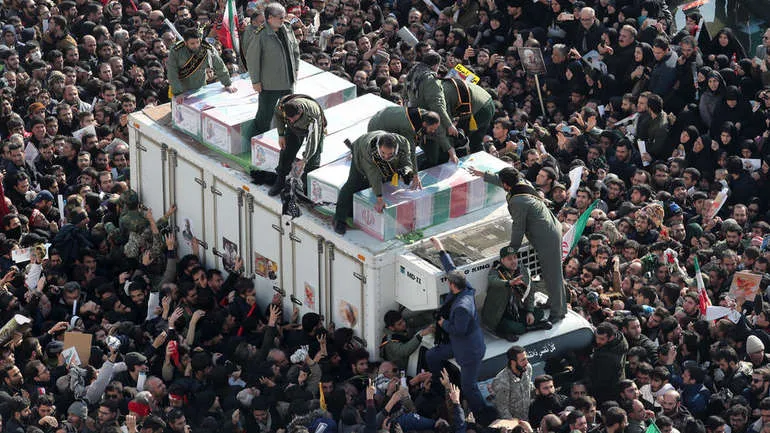Tehran's streets were packed with black-clad mourners Monday as a sea of people turned out to pay their respects to Qasem Soleimani, t...
Soleimani has been hailed a martyr and a hero inside Iran, especially due to his work in the fight against ISIS. Iranian Supreme Leader Ayatollah Ali Khamenei, the country's ultimate political and religious authority, was photographed praying over Soleimani's body during the funeral ceremony alongside President Hassan Rouhani. The US, however, has long viewed Soleimani as a terrorist and adversary. Washington claims he is responsible for aiding and abetting attacks by Iran's Shia allies against American troops, many of whom were killed during the bloodiest days of the Iraq War and in sectarian conflicts throughout the Middle East.
 |
| Iranians set a US and an Israeli flag on fire during Soleimani's funeral procession. |
Iran has vowed revenge and threatened both the US and Israel. Maj. Gen. Hossein Dehghan, the top military adviser to Iran's Supreme Leader, told the media that Tehran would retaliate by targeting military sites. The US operates about 800 military bases and logistical facilities outside its sovereign territory. And Iranian Foreign Minister Javad Zarif said the country will no longer limit itself to the nuclear restrictions set forth by the international nuclear deal reached in 2015 between Iran and a handful of other countries. The Trump administration abandoned the deal in 2018. Trump has responded to Iran's talk of vengeance by threatening to carry out a series of attacks a number of Iranian targets, including cultural sites -- a potential war crime.
 |
| Thousands of Iranians pay tribute to General Qassem Soleimani, killed in an American strike in Baghdad, January 6, 2019 in the capital Tehran AFP - ATTA KENARE |
The future of US troops in Iraq
Gulf Arab states and European leaders have called for restraint. In a joint statement Sunday, French President Emmanuel Macron, German Chancellor Angela Merkel and British Prime Minister Boris Johnson said there is "an urgent need for de-escalation" concerning rising tensions with Iran. Iraq's Parliament voted nearly unanimously to force the government to work toward the removal of US and other foreign troops inside the country, a clear rebuke to Washington over the strike that killed Soleimani.
 |
| Mourners carry images of Soleimani, as they walk in the funeral procession in the Iranian capital. |
Muqtada al-Sadr, a firebrand Shia cleric and fierce critic of the US, said the response by Iraq's parliament was weak "in comparison to American violations of Iraqi sovereignty." Meanwhile, Trump said any move to expel US troops from the country would be met with "sanctions like they've never seen before ever." "It'll make Iranian sanctions look somewhat tame," Trump said.








